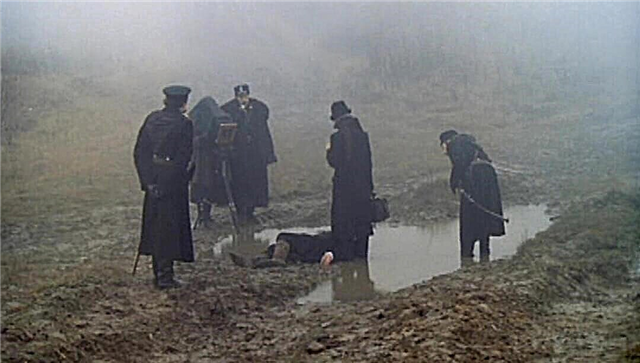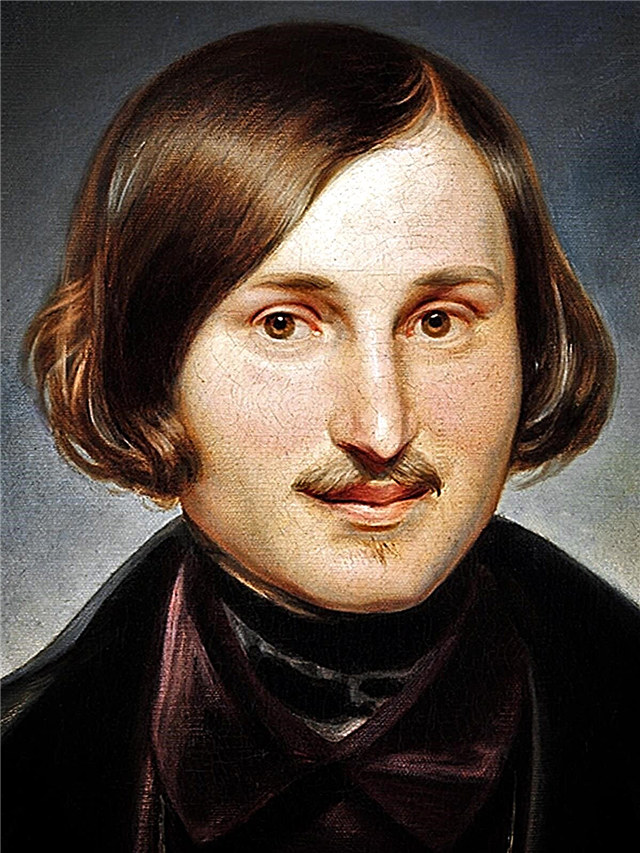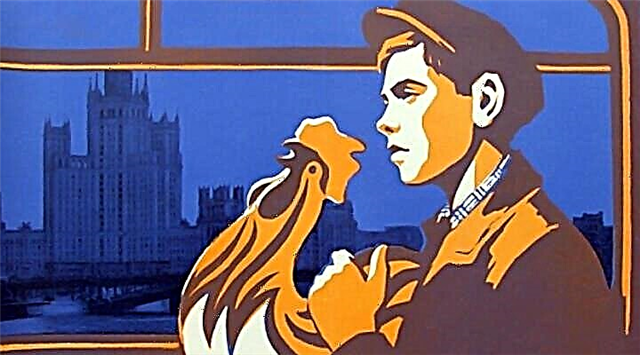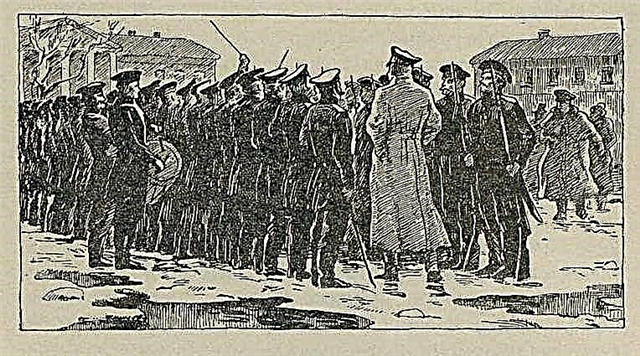A regiment of soldiers led by the captain enters the village of Zalameya. They are very exhausted by a long, grueling transition and dream of relaxation. This time, happiness smiles at them: instead of a short halt, several days of quiet life await them - the regiment remains in Salamea until it comes up with its parts don Lope de Figueroa. The sergeant, the assistant to the captain, distributing the officers to the billets, chose for the captain the house of Pedro Crespo, a well-to-do peasant who is famous for the fact that his daughter Isavel is the first beauty in the district. Among her admirers is the impoverished nobleman Don Mendo, spending hours under the windows of the girl. However, he is so ragged and miserable that the girl herself and her father treat him no more than with contempt: Esaule does not know how to discourage an intrusive boyfriend, and his father, outwardly respectful - as befits an ordinary person with a nobleman - actually escorts him with mocking looks. Isavel is not the only daughter of Pedro Armchair. She has a sister Iney and brother Juan. The latter delivers a lot of grief to his father. Pedro is a hardworking man, rich not only in the contents of his bins, but also in his worldly mind and ingenuity, while Juan thoughtlessly spends whole days playing games, squandering his father’s money.
Upon learning that the captain has been assigned to their house, Pedro begins hasty preparations, as if he was expecting the most dear guest. Pedro is rich enough to buy a noble letter, and with it all the privileges required, including exemption from standing, but he is a person with dignity, and is proud of what he received at birth - his good name. Knowing how impressive the beauty of his daughter Isael makes people, he sends her and her sister to the upper chambers, separated from the main part of the house, and orders them to stay there until the soldiers leave the village. However, the captain already knows from the sergeant that Pedro Crespo has a beautiful daughter, and it is this fact that makes him rush to wait. Pedro gives him the most cordial welcome, but the captain does not see the girl anywhere. The omnipresent sergeant learns from the servants where she is hiding. To penetrate the upper chambers, the captain thinks up the following: having agreed previously with one of the soldiers, Revolledo, he pretends to be chasing an angry warrior while he, supposedly escaping from the captain’s sword, runs up the stairs and breaks into the room where the girls are hiding. Now, when their shelter is open, Juan stands up to defend his sister, and it almost comes to a duel, but at that moment don Lope de Figueroa suddenly appears - it is he who saves the situation.
Don Lope is a celebrated commander, close to King Philip II. He quickly pacifies everyone and himself remains at a stand in the house of Pedro Crespo, inviting the captain to find another room. During the short time that Don Lope spends Pedro Armchair, they manage to almost make friends, despite the social inequality that separates them. Don Lope likes the calm dignity of the old peasant, his prudence and wisdom, his ideas about the honor of a simple man.
Meanwhile, the captain, hurt by the lively impregnability of Isaveli, can not reconcile with the thought that the peasant woman can be proud. The resourceful sergeant and here comes up with a way out - at night to lure the girl with songs and music to the balcony and, having thus achieved a date, get his own. But at the moment when, on the orders of the captain, music begins to play under Esauvel’s balcony, her unlucky admirer Don Mendo appears with his servant, ready to intercede for the honor of the lady of the heart. But it is not their interference that decides the matter: don Lope and Pedro Armchair, armed with swords and shields, drive everyone out from under the windows, including Don Mendo. An angry don Lope orders the captain to leave the village with his company.
The captain obeys only outwardly - in fact, he decides to secretly return to Zalamea and, having conspired with the servant of Esaveli, talk to the girl. He is even more affirmed in his determination to implement this plan when he finds out that don Lope leaves the village and goes towards the king. Indeed, don Lope made such a decision; along with him leaves as his servant and Juan Crespo. No matter how hard it is for father to say goodbye to him, the old peasant understands that this is the surest way to bring a negligent son into people, to teach him to get bread for himself. In parting, he gives his son instructions - an example of worldly wisdom, honesty and dignity. After seeing off his son, Pedro Crespo was sad and went out with his daughters to sit at the doorstep of the house. At this moment, the captain suddenly flies with his soldiers and right before his father’s eyes, they kidnap Isael.
Grabbing a sword, Pedro Crespo rushes in pursuit of the offenders. He is ready to sacrifice his life in order to save his daughter, but the soldiers tie him to a tree, while the captain is hiding with his prey in the forest more often, from where they hear to his father - all in the wilderness and wilderness - the cries of Isavel. After a while, all in tears, the girl returns. She is beside herself with grief and shame: the captain rudely abused her and threw one in the forest. Through the trees, Esawel saw her brother Juan, who, sensing the evil, was returning home halfway. Between Juan Crespo and the captain, a battle ensued, during which brother Isaveli severely wounded her offender, but, seeing how many soldiers were being surrounded, he rushed to flee into the thicket. Shame prevented Esaveli from calling out to Juan. All this the girl tells her father, freeing him from the bond. Grief Pedro Crespo and his daughter have no limits, but the usual prudence quickly returns to the old Kresyanin, and, fearing for the life of Juan, decides to return home as soon as possible.
On the way, he meets one of his fellow villagers who says that the local council just at his meeting elected him, Pedro Crespo, as the Alcald of Salamei. Pedro rejoices at this news - primarily because a high position will help him to make a right court. The wound received by the captain turns out to be quite serious, and he, unable to continue his journey, returns to Zalamea, to the house where he had recently stood still. There is Pedro Crespo with the baton of the Alcalde and orders the captain to be arrested, despite his indignation and angry protests, that he is judged only equal in position. But before giving the order for the arrest, Pedro, left alone with the captain, forgetting his pride, begs him to marry Isaveli - in response, he hears only contemptuous ridicule. Following Captain Pedro, Armchair sends his son Juan into custody, fearing that the overwhelming desire for vengeance will destroy the young man.
Don Lope unexpectedly returns: he received a report that some rebellious alcald dared to arrest the captain. Upon learning that this rebel is Pedro Armchair, don Lope orders him to immediately release the arrested person, but runs into the stubborn reluctance of the old peasant to do so. In the midst of their stormy explanation, the king enters the village, extremely dissatisfied with the fact that he was not given a proper reception. After hearing the story of Don Lope about what happened and the justification of Pedro Crespo, the king expresses his opinion: the captain is certainly guilty, but another, not peasant court, must judge him. Since Pedro Crespo does not believe royal justice, he hurried to crack down on the offender - the dead captain appears before the king and all those present who opened the door. Pedro Crespo justifies his action with the king's just expressed opinion about the captain's guilt, and there is nothing left for him but to recognize the execution as legal. Philip II also appoints Pedro Crespo as the irreplaceable alkald of Zalamea, and don Lope, having ordered the release of Juan Crespo from custody, takes him with him as a servant. Esabel will end his days in a monastery.

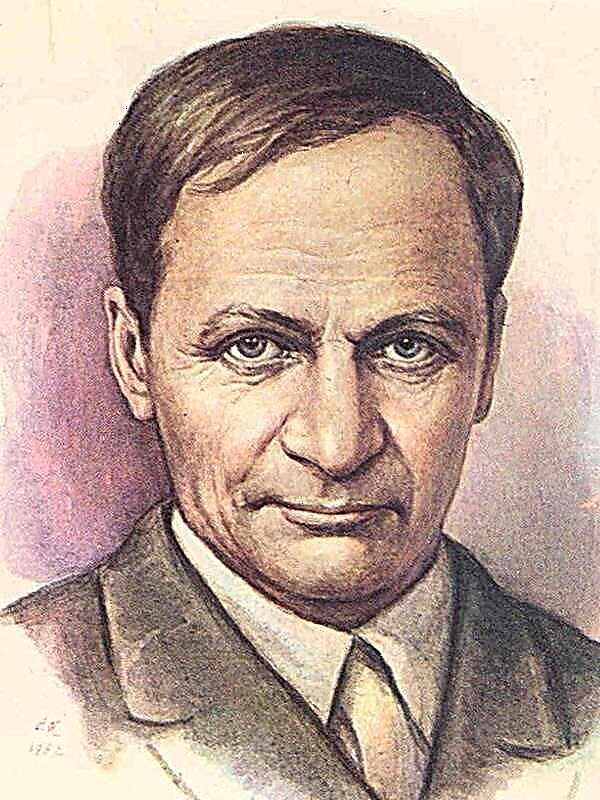

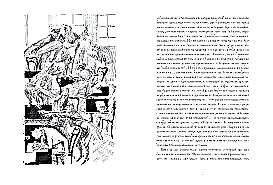
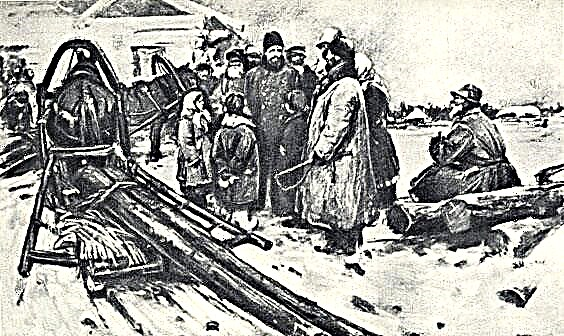
 The Last of the Mohicans
The Last of the Mohicans